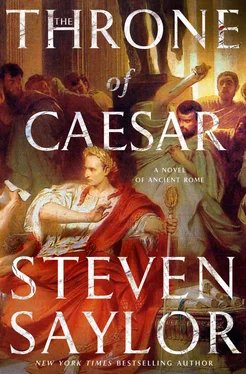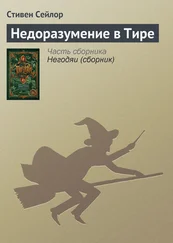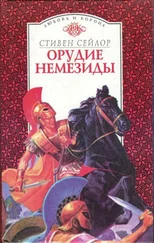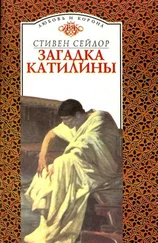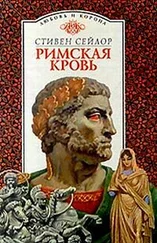Стивен Сейлор - The Throne of Caesar
Здесь есть возможность читать онлайн «Стивен Сейлор - The Throne of Caesar» весь текст электронной книги совершенно бесплатно (целиком полную версию без сокращений). В некоторых случаях можно слушать аудио, скачать через торрент в формате fb2 и присутствует краткое содержание. Год выпуска: 2018, Издательство: St. Martin's Press, Жанр: Исторический детектив, на английском языке. Описание произведения, (предисловие) а так же отзывы посетителей доступны на портале библиотеки ЛибКат.
- Название:The Throne of Caesar
- Автор:
- Издательство:St. Martin's Press
- Жанр:
- Год:2018
- ISBN:нет данных
- Рейтинг книги:5 / 5. Голосов: 1
-
Избранное:Добавить в избранное
- Отзывы:
-
Ваша оценка:
- 100
- 1
- 2
- 3
- 4
- 5
The Throne of Caesar: краткое содержание, описание и аннотация
Предлагаем к чтению аннотацию, описание, краткое содержание или предисловие (зависит от того, что написал сам автор книги «The Throne of Caesar»). Если вы не нашли необходимую информацию о книге — напишите в комментариях, мы постараемся отыскать её.
The Throne of Caesar — читать онлайн бесплатно полную книгу (весь текст) целиком
Ниже представлен текст книги, разбитый по страницам. Система сохранения места последней прочитанной страницы, позволяет с удобством читать онлайн бесплатно книгу «The Throne of Caesar», без необходимости каждый раз заново искать на чём Вы остановились. Поставьте закладку, и сможете в любой момент перейти на страницу, на которой закончили чтение.
Интервал:
Закладка:
“Are there always so many senators on the dais with Caesar?” I asked.
Cinna cocked his head. “No, but with Caesar about to depart, this is their last chance to pester him for favors. See how they keep their heads down and hands inside their togas, looking meek and respectful. Look, there’s Tillius Cimber, the old reprobate. No doubt he’s here to beg Caesar to recall his brother from exile.”
Cimber was a tall man whose most noticeable feature was a very red nose, the sign of a hard drinker. He and a score of others swarmed about Caesar, like flies around honey.
“Soon enough he’ll shoo them all away and the meeting can begin,” said Cinna. “As consul, Antony is the one who should call us to order. Where is Antony? He’s not still outside, is he?”
Like Cinna, I turned and looked around the room, and so it was that I missed something that happened on the dais, for when I looked again at Caesar, seated in his chair, someone had grabbed hold of his toga. It was Cimber, whose back was to me. Beyond him I could see Caesar’s face. He looked at first puzzled, and then angry. He seemed to be trying to rise from his chair, but Cimber clutched his toga so tightly that Caesar couldn’t get up.
“What in Hades does that fool think he’s doing?” said Cinna .
The strange battle of wills continued for a heartbeat, and then Cimber pulled at the toga so forcefully that it slipped from Caesar’s shoulder, baring his neck.
“This is violence!” snapped Caesar, as if rebuking an outrage to his dignity.
Then I saw a figure behind Caesar. It was Casca. He seemed to exchange a look with Cimber, then raised his arm.
In Casca’s hand I saw a dagger.
XXXV
In such moments, time becomes attenuated. The normally stiff and unyielding stuff of reality is suddenly in flux. Many thoughts take place in the blink of an eye.
One of these thoughts, briefly foremost in my mind, was this: Where did the dagger come from? And the answer appeared in my mind at once: It had come from one of those heavy-looking leather drums—heavy because they were filled not with scrolls but with daggers.
While I stared at the dagger in Casca’s upraised hand, at the peripheries of my vision points of light flashed amid the crowd of togas on the dais, and I knew that these flashes must be the glimmer of reflected sunlight on metal. There was not one dagger in Caesar’s presence, but many daggers.
Casca stabbed downward. If the blow was aimed at the vein in Caesar’s neck, he missed, for Caesar jerked backward, toward Casca. The knife struck Caesar’s breast, cutting through layers of wool and striking flesh. Blood erupted at the site of the blow, a dark stain on the purple wool that began as a small point and then blossomed to the size of a man’s fist .
Caesar whirled around in his chair and stabbed blindly with the stylus in his hand. The pointed instrument struck Casca somewhere, but whether it drew blood or not I couldn’t tell. Casca yowled like a dog and sprang back, dropping his dagger. “Gaius!” he cried—the name of his brother.
Caesar tried to spring up from the chair, but Casca’s brother lunged forward and stabbed him in the ribs. Knocked from Caesar’s hand, the stylus fell to the floor with a loud clang. Another blossom of dark red erupted on Caesar’s toga.
On his face I saw many emotions. Fear was not among them. Shock was there, and loathing, and anger. “Curse these Cascas!” he shouted. The brothers had always been Caesar’s friends and allies. Perhaps he thought it was only the two of them who were attacking him and was calling on the others to hold the brothers back.
Instead, more men with daggers stepped forward. Caesar raised his hands to defend himself, but a frenzy of stabbing ensued. The repetitive motion made me think of augury chickens pecking at sacred grain, their heads bobbing up and down. So moved the flashing knives, as if powered by some mindless force of nature, up and down.
Some of the senators struck no more than glancing blows, but others ripped wool and penetrated flesh with a sickening, slicing sound. Some failed to strike Caesar altogether, and some—to judge by the screams and shouts—accidentally struck each other.
Somehow Caesar managed to stagger to his feet, or else he was driven forward by blows against his back. Before my eyes, his purple toga became many shades darker, almost black, as blossoms of blood spread and merged into one another.
On Caesar’s face I now saw a look of utter confusion. He seemed to be thinking what I was thinking: Can it happen so quickly? Could a man like Caesar—known to everyone, everywhere—a man who had conquered nations, enslaved tribes, slaughtered entire cities—a man without fear or trepidation or doubt, seemingly incapable of error—a man as close to godhood as any mortal who had ever lived—could such a man be alive one moment … and dead the next ?
It seemed somehow against nature that what I was witnessing could actually be taking place. For one instant, with a terrible jolt, I was certain that I truly was imagining what I saw. I felt utterly detached from my own senses, unmoored from the world around me. It was as if a trapdoor opened beneath my feet. But the next instant, with an even more terrible jolt, I knew that what I witnessed was entirely, horribly, irreparably real.
Will no one defend him? I thought. Where is Antony? Where is Decimus? Then I saw that at least two senators on the crowded dais were shouting and waving their arms, begging the others to stop. But they were unarmed and vastly outnumbered. The assassins forced them off the dais at knifepoint.
I turned my head and looked at the crowded chamber behind me. The men nearest to me saw what was happening, but farther back, toward the entrance, the crowd was still conversing and milling about, oblivious of the carnage. No one outside the Senate House of Pompey could yet know what was happening. Soon enough, everyone in Rome would know. Eventually, everyone in the world would know. But not yet …
I thought of Meto. Had he managed to get into the gladiator show in the theater? I imagined I could hear a distant eruption of cheering above the hubbub inside the Senate House. Then the noise inside the room began to change, as screams and cries of alarm broke out. Like a bloodstain, knowledge of the events on the dais spread rapidly.
“They’ve killed Caesar!” someone shouted. “They’re going to kill us all!”
Who were the “they” killing Caesar? Who were the “us” they would kill next? Many other confused shouts and cries of panic echoed throughout the chamber.
Amid the crowd I spotted Cicero. Tiro stood next to him, holding a wax tablet and stylus. While others turned and scuttled past them, heading for the exit, they both stood still, as if transfixed. On Tiro’s face I saw a look of shock. On Cicero’s face I saw something else. He was surprised, yes—but also delighted. There was no other word for it. He looked like a man whose wife has just given birth, or a politician who’s just won an election. He opened his mouth and emitted a series of sharp, nervous laughs. He trembled and swayed. He was giddy with joy.
I looked back to the dais. Cassius stepped forward and slashed awkwardly at Caesar, cutting his cheek. Blood spurted from the wound. Caesar grimaced and staggered back.
Then I saw Decimus. He had clung to Caesar at every step on the way to the golden chair. Where was he when the carnage began? No matter, he was present now. Was it too late for him to put a stop to the stabbings? Might Caesar yet survive, and this moment become another testament to his divine good fortune?
If anyone could save Caesar, I thought, surely it would be Decimus.
Then I saw the dagger in Decimus’s hand. He lunged forward and stabbed Caesar’s ribs, forcing him backward so that Caesar collided with the golden chair, knocking it over.
Читать дальшеИнтервал:
Закладка:
Похожие книги на «The Throne of Caesar»
Представляем Вашему вниманию похожие книги на «The Throne of Caesar» списком для выбора. Мы отобрали схожую по названию и смыслу литературу в надежде предоставить читателям больше вариантов отыскать новые, интересные, ещё непрочитанные произведения.
Обсуждение, отзывы о книге «The Throne of Caesar» и просто собственные мнения читателей. Оставьте ваши комментарии, напишите, что Вы думаете о произведении, его смысле или главных героях. Укажите что конкретно понравилось, а что нет, и почему Вы так считаете.
